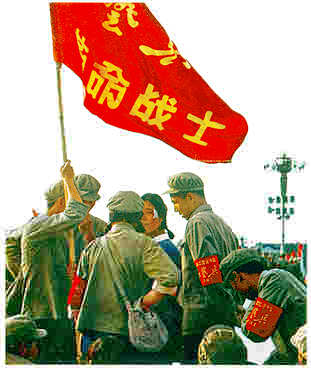The Communist Manifesto (1848)
Author: Karl Marx (1818-1883)
- One of the most important and influential intellectuals of the nineteenth century
- Economic situation was very volatile, but usually in poverty
- Banned from entering many locations due to his radical ideas
Context:
- Published in 1848
- Industrial Revolution is either in full swing or starting to take hold, depending on location
- The Communists has become feared by many in Western Europe, yet the group itself does not have a clear purpose, direction, or organization
- Many of its members are not that knowledgeable of the complexities and history that Marx was able to notice
- Western Europe is on the verge of revolution in many different locations – especially Germany
Language:
- The Manifesto seems to be split into two in this regard:
- Some sections are very dense with heavy academic wording and style → hard to read
- Some sections are very straightforward and easy for everyone to understand
- The list Marx made towards the end of the second section
- The last words of the Manifesto, which are in all caps and are in simple terms
- Marx, who ran his own newspaper, likely did this on purpose. Newspapers could publish excerpts from the Manifesto that were clear and easy for everybody to understand. Meanwhile, academics and the well versed could read through the denser sections and understand Marx’s intentions.
Audience:
- The workers of the world, academics, and political elites were all likely part of the target audience of Marx.
- Current Communists at the time of Marx’s writings were also part of Marx’s audience because it was in this document that Marx tried to shape the direction of the Communist Party/League.
Intent:
- Marx was trying to spread the idea of Communism to the rest of Europe and was trying to organize the Communist Party/League.
- Marx also has a few other motives:
- Rebuke the Communist Party/League’s critics and return the challenge back in their direction
- Explain how Communism is different from the varying strands of socialism
- Explain the history of the bourgeois and the proletariat – highlighting constant class struggle
- Establish the current state of Communism and revolutionary possibilities across Western Europe
Message:
- The factory workers, or the proletariat, are the latest in a constant series of class struggle throughout history. The bourgeois are also part of this cycle, and they currently are in a revolution against the feudal powers of old. (These revolutionary beliefs come to fruition in the revolutions of 1848.) For the time being, the proletariat should help the bourgeois in these revolutions. Eventually, the proletariat will revolt against a bourgeois ruling class.
- It lays the framework for the Communist Party/League, setting it apart from other Socialist groups.
- All the workers in the world should unite against the capitalism and bourgeois class that oppresses them.
Why:
- The Communists have been recognized as a threat by many of the Western European powers, and as such, Marx thinks it fitting that he set a standardized position of the Communists and provide leadership to a relatively incoherent movement.
- Marx likely developed these views after seeing the horrors that capitalism and the Industrial Revolution have caused throughout Western Europe. On top of his own being witness to these situations, he likely has read the writing of many of those before him who also shared some of his thoughts.
Relationship to Previous Readings:
- Marx alludes to a couple of the writers we have read before, such as Owen and St. Simon. However, despite likely agreeing with their assessment of the negatives of the Industrial Revolution, he distances the Communists from them. In short, in Marx’s perspective, Owen and St. Simon wanted to work within the system and improve all classes, not just the working class. Meanwhile, Marx clearly favors the working class and wants an overthrow or overhaul of the system.
- Marx is advocating for a complete one hundred eighty degrees from Adam Smith. As opposed to allowing the economy to run its course, as Smith advocates, Marx desires from the state to completely control, balance, and equalize the economy.
Questions:
- What is the appeal of the Communist Party/League and/or Marxism?
- Placing yourself in the context of a factory worker, would you want to join?
- Although we will likely touch upon this later, in what ways did the Soviet Union (USSR) and the People’s Republic of China veer away from the Communist Manifesto?

 Perestroika and glasnost were terms Gorbachev used to embody his cultural reforms and openness to Western influence. The Chinese, too, had a period of openness. In 1956 Mao said that, “The policy of letting a hundred flowers bloom and a hundred schools of thought contend is designed to promote the flourishing of the arts and the progress of science.” This “100 Flowers Movement” was ended in 1957 with political persecutions. Both Communist powers handled political dissonance in the second half of the 20th century differently, with the USSR embracing and the Chinese silencing controversy. Though, to look at it all now, the USSR has been disbanded and China is still heavily controlled by a limited ruling class.
Perestroika and glasnost were terms Gorbachev used to embody his cultural reforms and openness to Western influence. The Chinese, too, had a period of openness. In 1956 Mao said that, “The policy of letting a hundred flowers bloom and a hundred schools of thought contend is designed to promote the flourishing of the arts and the progress of science.” This “100 Flowers Movement” was ended in 1957 with political persecutions. Both Communist powers handled political dissonance in the second half of the 20th century differently, with the USSR embracing and the Chinese silencing controversy. Though, to look at it all now, the USSR has been disbanded and China is still heavily controlled by a limited ruling class.